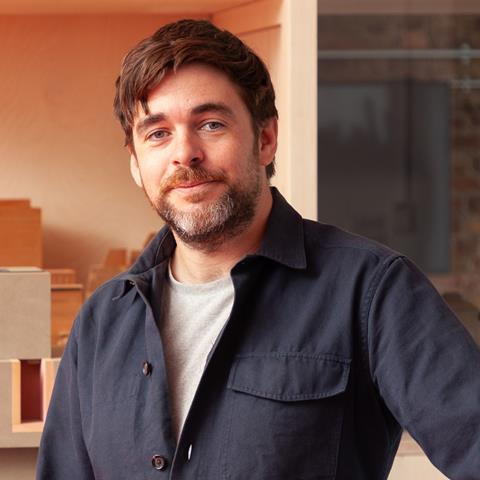David Storring calls for a bold, future-facing architectural agenda – one grounded in resilience, collaboration, and the material realities of the 21st century
Austin Williams argues that architecture is stifled by ideological rigidity – or what some might call ‘wokeism’ – but this framing distracts from a far more urgent issue: climate change and the need for sustainable, resilient design. Rather than being constrained by ideology, architects are increasingly responding to real-world challenges such as environmental degradation, resource scarcity, and economic instability. This should be recognised as a unique opportunity for innovation – after all, necessity has long been a driving force behind meaningful progress.

Williams’s recent comment piece in BD presents populism as a justified backlash against an out-of-touch elite. In practice, however, populism has frequently led to ill thought out deregulation and short-term thinking – policies that actively undermine sustainability and long-term resilience.
Trump’s call for “beautiful” civic buildings may appear harmless on the surface, but his administration consistently prioritises corporate profit over environmental responsibility. Weakening regulations does not lead to better architecture; it leads to wasteful, poor-quality development that fails to meet the demands of a changing climate or the real needs of the people who use buildings and spaces every day.
Capitalism, in its current form, was never designed to solve collective challenges. It rewards short-term profit over long-term social and environmental outcomes.
What is needed is not nationalist rhetoric or market deregulation, but shared policies and meaningful international cooperation. These are the foundations required to produce architecture that is resilient, inclusive, and future-proof.
Patrik Schumacher claims that architecture is disconnected from the real world, decrying what he calls an “increasingly incestuous academic culture of dilettante distraction”. But this seems to miss the point entirely.
The real task facing architects today is not to wade into ideological battles, but to tackle the very real, very global issues of climate breakdown, growing inequality, and the housing crisis
It is architects who are grappling with climate breakdown, material scarcity and social inequality who are most engaged with the real-world pressures shaping the built environment today – problems that both Schumacher and Williams often imply either don’t exist or are overstated.
Ironically, for all their talk of intellectual freedom, it is perhaps Schumacher and Williams who are stuck in an intellectual cul-de-sac – clinging to outdated critiques of regulation and railing against a version of architecture that bears little resemblance to the complex, resource-constrained world we now inhabit.
In truth, they seem to be hankering for the lost intellectual certainties of their own youths – a time when economic growth was taken for granted, regulation was optional, and the Earth’s resources appeared infinite and disposable.
Populist movements threaten the stability on which good architecture and a healthy construction sector depend. Design excellence relies on long-term vision, public trust, and steady investment – all of which are undermined by volatile politics and culture war distractions.
The real task facing architects today is not to wade into ideological battles, but to tackle the very real, very global issues of climate breakdown, growing inequality, and the housing crisis. These are not abstract concerns – they are the material realities shaping the future of the built environment.
If architecture is to genuinely reconnect with the public, the focus must be on delivering safe, sustainable, and equitable environments – not chasing aesthetic nostalgia or abandoning social responsibility. The future of architecture lies in collective effort, long-term thinking, and policy frameworks that support innovation and inclusion.
What’s needed now is not a race to the bottom, but a bold, coordinated ‘moonshot’ approach – one grounded in collaboration rather than individual soapboxes.
>> Also read: Why architects must confront the changing political landscape
>> Also read: ‘It’s the end of architecture’ – Patrik Schumacher declares war on woke culture
>> Also read: Are the culture wars distracting us from architecture’s real challenges?
Postscript
David Storring is Morris+Company’s director of sustainability and innovation.
















2 Readers' comments